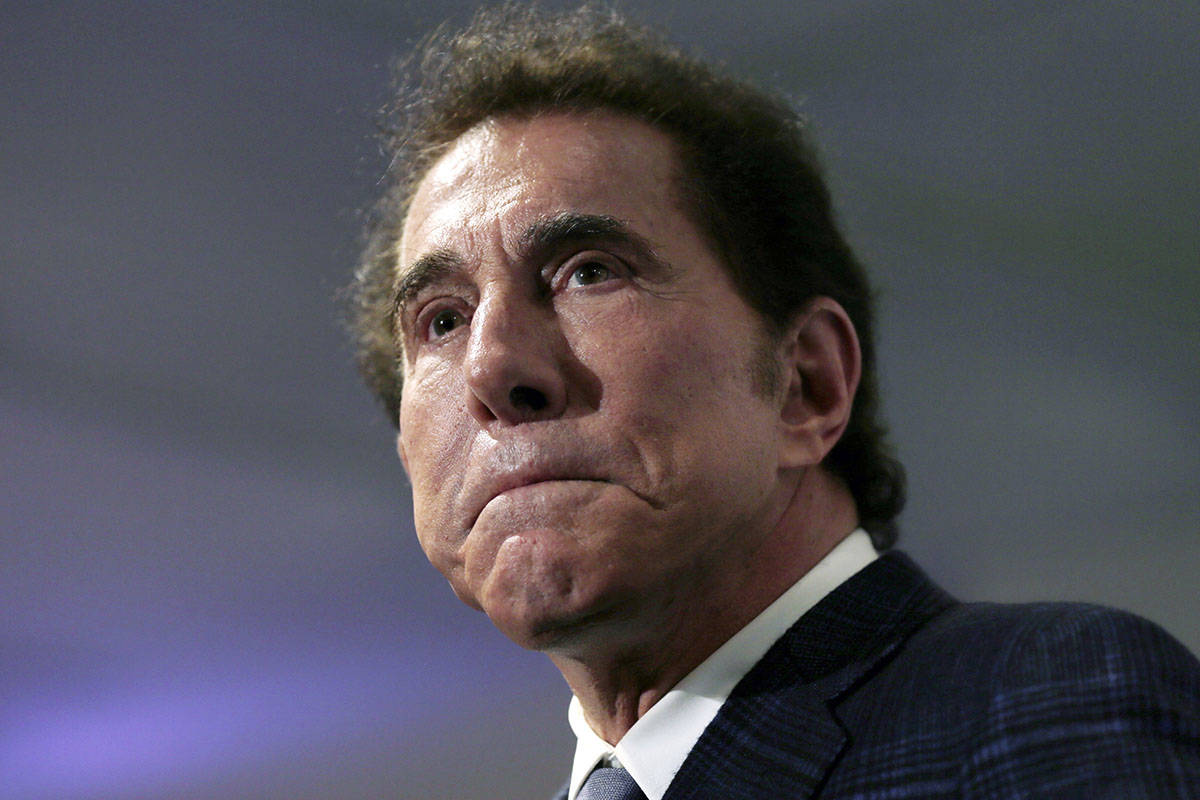Casino regulators appeal of Steve Wynn ruling isn’t entirely about Wynn
It took all of about 60 seconds last week for the Nevada Gaming Control Board to unanimously vote to continue pursuing the right to take action against former Wynn Resorts Ltd. Chairman and CEO Steve Wynn.
District Court Judge Adriana Escobar recently ruled that regulators no longer have jurisdiction over Wynn. The board is appealing.
While board members didn’t discuss their reasoning, not wanting to tip anyone off to potential legal strategies they may use, it’s clear there’s more to it than chasing after Steve Wynn.
I spoke to former Gaming Control Board chairs to get their perspectives and they concluded that if the precedence of the ruling is allowed to stand, it could erode regulators’ ability to oversee and properly discipline licensees.
“The message that’s being sent to gaming licensees is if you run into disciplinary challenges and the (Gaming) Commission may want to take away your license or pursue criminal violations, all you have to do is divest yourself and they have no jurisdiction,” said former Gaming Control Board Chairwoman Becky Harris, now a distinguished fellow at UNLV’s International Gaming Institute. “That’s a problem for a privileged license. The supposition has always been that the board has continuing jurisdiction.”
The board issued a five-count complaint against Wynn for workplace sexual misconduct and sexual harassment of female company employees in October 2019. Wynn has denied ever harassing anyone.
The Nevada Gaming Commission reviewed the complaint two months later. Commissioners concurred that testimony about the complaint could be heard despite objections from Wynn’s attorneys that Wynn’s resignation from his position in February 2018 and the divestment of all his shares of Wynn stock a month later prevented regulators from punishing him with a fine and a potentially even banning him from operating a casino in the state again.
In January, Wynn filed a petition that claimed state regulators did not have authority over him because he was no longer involved with Wynn Resorts.
Escobar’s ruling supporting that position was disclosed Nov. 20, saying regulators have no jurisdiction over Wynn because he “has no material involvement, directly or indirectly, with a licensed gaming operation or registered holding company.”
But the regulators dispute that, saying Wynn failed to properly surrender his license and there are regulations and statutes that address how a licensee exits the industry.
In fact, regulators started an investigation and ordered an administrative hold on Wynn’s license immediately after The Wall Street Journal published an article detailing harassment allegations well before Wynn moved to divest from the company.
A Nevada Revised Statute addressing the surrender of gaming licenses says, “The voluntary surrender of a license by a licensee does not become effective until accepted in the manner provided in the regulations of the (Nevada Gaming) Commission. The surrender of a license does not relieve the former licensee of any penalties, fines, fees, taxes or interest due.”
A separate statute on the general powers and duties of the Control Board and the Gaming Commission says: “For the purpose of conducting audits after the cessation of gaming by a licensee, the former licensee shall furnish, upon demand of an agent of the board, books, papers and records as necessary to conduct the audits. The former licensee shall maintain all books, papers and records necessary for audits for one year after the date of the surrender or revocation of his or her gaming license.”
In other words, Wynn was obligated to communicate with the Control Board about his planned exit.
In addition to the state statutes, Control Board regulations 9 (on closing of a gaming business) and 17 (on supervision) detail other requirements of licensees.
Harris likened the relationship between the state and the licensee to a marriage. A couple is required to go to the government for a marriage license. And, if they choose to end the marriage in order to remarry, limit the ex-spouse’s access to certain types of assets or to disinherit family members, they must go to the government for a divorce decree.
Steve Wynn didn’t get his divorce decree from gaming regulators.
And now, regulators are doing what they can to prevent others from trying to do the same thing.
Contact Richard N. Velotta at rvelotta@reviewjournal.com or 702-477-3893. Follow @RickVelotta on Twitter.























